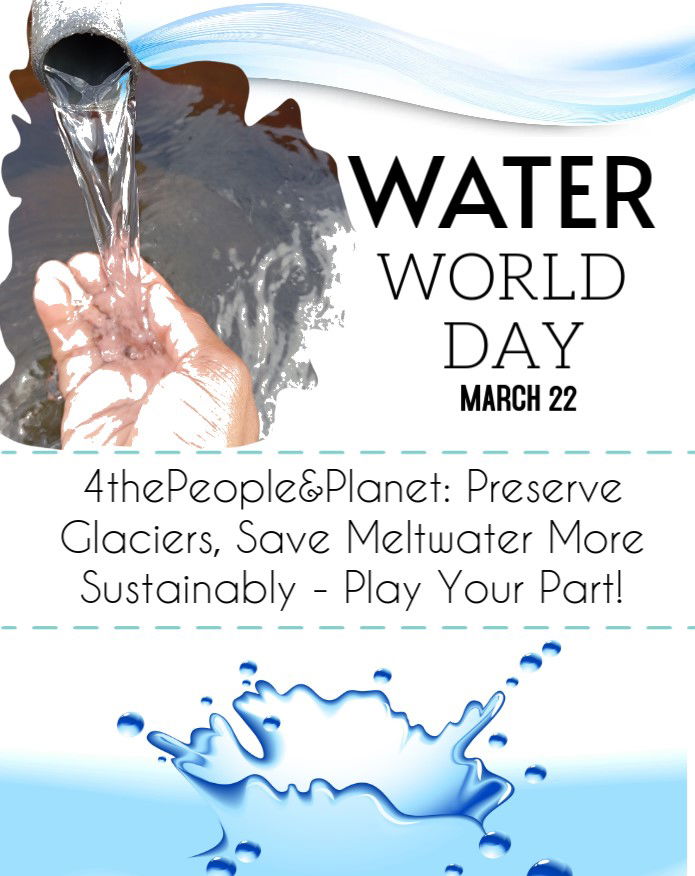FAITH AND ACTION: 2025 WORLD WATER DAY REFLECTION THROUGH FAITH LENS

Did you know?
- Access to adequate safe water is a human right
- A human body constitute about 60% water
- 2.2 billion people do not have access to safe water
Raising awareness is the starting point; every 22nd of March is an international observance day for water. Since water is fundamental, all people both the young and the old regardless of gender, race, culture or religion, there is need to learn more about water related issues like scarcity, pollution, sanitation including the climate change impacts. Water conservation is a global and moral duty -everyone has a role to play. If you have access to sufficient and safe water, don’t take that for granted.
Going back to the recent 2023/24 El Nino period in Zimbabwe; did you learn something about water conservation? Personally, as a small holder rural farmer and household water consumer, I witnessed and experienced the harsh realities of water scarcity, especially in rural communities like Mutoko. Reduced and unpredictable rainfall, drying of perennial water sources – all these challenged different water consumers – households, farmers, manufacturers including fauna and flora that are also water dependent. And yes, those who resorted to water use efficiency and conservation techniques managed well. While in a queue at a water well, out of blue, maybe thinking out loud, one lady just shouted, ‘haa donwe rakakosha wasikana’(every drop counts).
But one question still lingers; did we learnt or are we truly learning to conserve water or we are merely reacting to water insecurity, without sustainable long term solutions?
Moving closer to the recent 2025 World Water Day centered on ‘Glacier Preservation’; What do Glaciers have to do with water issues in Mutoko?, How does faith and water relate?
Truly glaciers may seem distant from the water struggles in water scarce communities like Mutoko; but although a distant away from Zimbabwean borderlines, glaciers store about 70% of the world’s freshwater in the form of ice or snow, making them vital to global water consumption and security. They play a key role in global water cycle, regulating flows and recharging aquifers. Despite their significance, glaciers are under threat due to the undeniable climate change which is causing them to shrink, including melting of snow, at an alarming rate. The shorter term effects includes sea level rise, increased runoff and/ floods. In the long run, glacier shrink results in unpredictable water cycles and many consequences have significant impacts not only for people in proximity but also for distant communities like Mutoko.
How can we help to preserve Glaciers? Wherever you find yourself in, be it a glacier or non-glacier location, a collective action against climate change is key to glacier conservation. Tree planting, water use efficiency and conservation practices, reduction of carbon footprint are some of the practical actions that can help to preserve our global water reservoirs. Regardless of size, every action contributes towards the broader effort on climate action, shaping the future of adequate and safe water for the people and the planet, the now and the future. I believe the 2025 World Water theme has helped us to see water beyond our local wells, rivers, dams and boreholes - it is a global system connecting melting glaciers, disappearing wetlands and depleted aquifers.
What about faith and Glacier Preservation? As a pilgrim of hope, including other pilgrims from CYNESA and multi-faith communities; Hope and Renewal are possible. The beginning is to simply acknowledge that water is not just a mere resource, but it is life, a sacred gift. Dwelling on Pope Francis’ Encyclical Laudato Si including the Laudate Deum of 2023, as the people of faith and/ goodwill – we are reminded that the climate crisis is not only a scientific and political issue, but spiritual and moral too. Thus faith communities have a role to play – ‘Living our vocation to be protectors of God’s handiwork is essential to a life of virtue, it is not an option or a secondary aspect of our Christian experience’ (LS 217). As we journey in the 2025 Lenten Season and Jubilee Year – let us rethink our relationship – with God the Creator, with neighbors especially those in water scarce regions, including that with creation like glaciers.
Reflect upon the ways you have been contributing to glacier retreat and with hope, faith and action, embark on a pilgrimage of reconciliation with our common home. Now is the time to answer the call for a new dialogue on how to shape the future our planet, listen with your heart and hear the melting cry of the 2.2 billion people lacking access to safe water. This dialogue has to start with you as a person of goodwill, entrusted by God to till and keep the earth with all the resources within it (Genesis 2:15). From such a moral ground, creative and ethical solutions to sustaining and conserving our frozen water storages can sprout. Play your part!